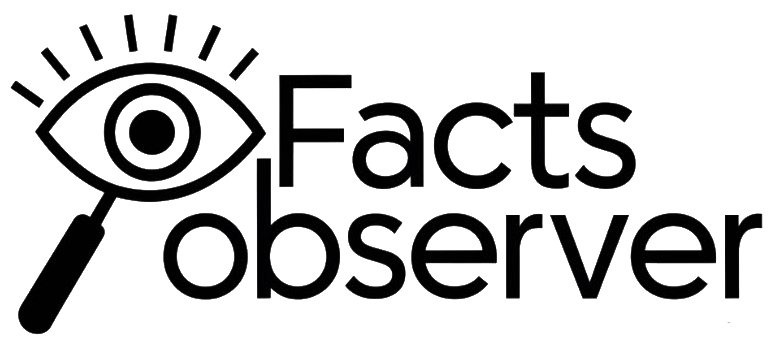The landscape of business operations is heavily influenced by a myriad of laws and regulations designed to create a structured environment for commerce. These regulations can vary widely by industry, location, and the nature of the business itself. This article provides a comprehensive overview of the key laws and regulations that impact businesses, highlighting their purposes, benefits, and challenges.
1. Introduction to Business Regulations
Business regulations are rules established by government entities to govern the conduct of businesses. They aim to protect consumers, ensure fair competition, and promote public welfare. The regulatory framework encompasses various domains, including labor laws, environmental regulations, tax obligations, and consumer protection laws. Understanding these regulations is crucial for businesses to operate legally and efficiently.
2. Types of Business Regulations
2.1. Employment and Labor Regulations
Labor laws dictate the relationship between employers and employees. Key regulations include:
- Minimum Wage Laws: Establish the lowest hourly wage that can be paid to workers, aiming to ensure a basic standard of living. The Fair Labor Standards Act (FLSA) mandates minimum wages and overtime pay for eligible workers.
- Overtime Regulations: Govern the compensation for hours worked beyond the standard workweek, typically requiring higher pay rates for overtime hours.
- Anti-Discrimination Laws: Prohibit discrimination based on race, gender, age, disability, and other characteristics, promoting equality in the workplace. The Equal Employment Opportunity Commission (EEOC) enforces these laws.
- Occupational Safety and Health Administration (OSHA): Sets safety standards to protect workers from hazardous conditions. OSHA’s regulations cover a wide range of workplace safety issues, including exposure to toxic substances and the requirement for safety training.
2.2. Tax Regulations
All businesses must comply with various tax regulations, including:
- Income Tax: Businesses must pay taxes based on their profits. The structure of the business (e.g., corporation, partnership) affects tax obligations. Corporations face a flat tax rate, while pass-through entities report income on personal tax returns.
- Employment Taxes: Employers are responsible for withholding income tax and paying Social Security and Medicare taxes for their employees. This includes federal unemployment tax as well.
- Sales Tax: Many states impose sales tax on goods and services, requiring businesses to collect and remit these taxes. Compliance with state-specific sales tax regulations is crucial for retailers.
- Excise Taxes: Certain industries may be subject to excise taxes on specific goods or activities, such as fuel or tobacco products.
2.3. Environmental Regulations
Environmental laws aim to protect natural resources and public health. Key regulations include:
- Clean Air Act and Clean Water Act: Regulate emissions and discharges to protect air and water quality. The Environmental Protection Agency (EPA) enforces these laws through inspections and compliance programs.
- Waste Management Regulations: Govern the disposal of hazardous and non-hazardous waste to minimize environmental impact. Businesses must comply with regulations on waste treatment, storage, and disposal.
- Environmental Impact Assessments (EIA): Require businesses to assess the environmental effects of their proposed projects, ensuring that potential impacts are considered before approval.
2.4. Antitrust Laws
Antitrust regulations prevent anti-competitive practices that can harm consumers and the economy. Key components include:
- Price Fixing: Agreements between competitors to set prices at a certain level are prohibited, as they restrict competition.
- Market Allocation: Competitors cannot agree to divide markets or customers to reduce competition, which can lead to monopolistic practices.
- Monopolistic Practices: Laws prevent businesses from engaging in practices that create or maintain monopolies, ensuring a competitive marketplace.
2.5. Consumer Protection Laws
These laws protect consumers from unfair business practices. Key regulations include:
- Truth in Advertising: Requires that advertisements be truthful and not misleading, enforced by the Federal Trade Commission (FTC).
- Fair Credit Reporting Act: Regulates how consumer credit information is collected and used, protecting consumers from identity theft and inaccurate reporting.
- Consumer Product Safety Act: Establishes safety standards for consumer products to prevent harm, overseen by the Consumer Product Safety Commission (CPSC).
3. The Impact of Regulations on Businesses

3.1. Benefits of Regulations
Regulations can provide several benefits to businesses, including:
- Consumer Trust: Compliance with regulations can enhance a company’s reputation and build consumer trust, leading to increased customer loyalty.
- Market Stability: Regulations help create a level playing field, reducing the risk of unethical practices that could destabilize markets and harm consumers.
- Innovation Encouragement: Some regulations, such as patent laws, encourage innovation by protecting intellectual property, allowing businesses to invest in research and development.
- Financial Assistance: Government programs can provide financial support, training, and resources for businesses, particularly startups and small enterprises.
3.2. Challenges Posed by Regulations
While regulations serve important purposes, they can also pose challenges for businesses:
- Compliance Costs: The costs associated with adhering to regulations can be significant, particularly for small businesses that may lack resources to manage compliance effectively.
- Administrative Burden: Navigating complex regulatory environments can be time-consuming and may require specialized legal or compliance expertise.
- Impact on Competitiveness: Some businesses argue that excessive regulations can hinder their ability to compete, particularly against larger firms that can absorb compliance costs more easily.
4. Recent Trends in Business Regulations
The regulatory landscape is continually evolving, influenced by economic, social, and technological changes. Recent trends include:
- Increased Focus on Data Privacy: With the rise of digital commerce, regulations such as the General Data Protection Regulation (GDPR) in Europe and various state-level privacy laws in the U.S. are becoming more prevalent, requiring businesses to implement stringent data protection measures.
- Sustainability Regulations: Growing concerns about climate change are leading to stricter environmental regulations, impacting industries such as manufacturing, energy, and transportation. Businesses are increasingly required to adopt sustainable practices.
- Gig Economy Regulations: As the gig economy expands, governments are exploring regulations to protect gig workers’ rights and benefits, ensuring fair treatment in this rapidly evolving labor market.
5. Conclusion
Understanding the complex web of laws and regulations affecting businesses is essential for compliance and success. While regulations can present challenges, they also offer protections and benefits that can enhance business operations and consumer trust. As the regulatory environment continues to evolve, businesses must remain vigilant and adaptable to navigate these changes effectively.
FAQs
Q1. What are the main types of business regulations?
A1. The main types of business regulations include employment and labor laws, tax regulations, environmental laws, antitrust laws, and consumer protection laws.
Q2. How do regulations impact small businesses?
A2. Regulations can impose compliance costs and administrative burdens on small businesses, but they also provide protections that can enhance consumer trust and market stability.
Q3. Why are regulations necessary?
A3. Regulations are necessary to protect consumers, ensure fair competition, and promote public welfare, addressing issues that may arise in unregulated markets.
Q4. How can businesses stay compliant with regulations?
A4. Businesses can stay compliant by regularly reviewing applicable laws, investing in compliance training, consulting with legal experts, and implementing robust internal policies and procedures.
Q5. What are the consequences of failing to comply with regulations?
A5. Failing to comply with regulations can result in legal penalties, fines, loss of business licenses, and damage to a company’s reputation, which can have long-lasting effects on its operations.







